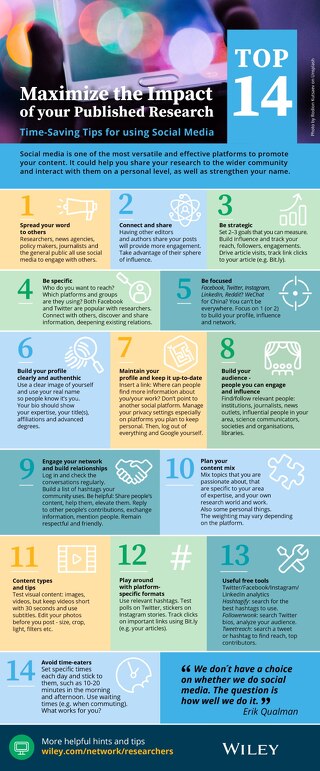discoverability-in-china-why-baidu-scholar-is-good-news-for-researchers
February 03, 2016
With over 641 million people online, China currently has the world’s largest population of internet users, and this number is only going to grow as more and more Chinese citizens get connected. Wiley has just signed a license agreement with Chinese internet giant Baidu, but what does this mean for you as an author?
Firstly, some background…
The global search engine market continues to be dominated by Google, with 54.7% of worldwide search ad revenues in 2014. However, since the Google ban in China, it has lost out on a huge proportion of the market (21.97% of the world’s internet users are Chinese). Baidu is the most popular search engine in China, and has undoubtedly gained from Google’s loss – the company will see its global share of search ad revenues increase from 6.4% in 2013 to 8.8% in 2015.
How does this affect authors?
Since the Google ban in China, traffic from Google and Google Scholar to Wiley Online Library and other publisher platforms has been significantly affected. For example, visits to WOL from Google dropped by around 30%, and from Google Scholar, by around 15%. China is the second biggest research output provider in the world, and for authors who want to be read and cited in China, the Google ban has major implications for discoverability.
In June 2014, Baidu launched Baidu Scholar with the aim of becoming the biggest research platform in China, and, through the acquisition of English language resources and publications, to become the best English language search platform in China. By the end of 2014, Baidu Scholar included hundreds of thousands of academic websites and had indexed over 100 million literature resources in total, providing free access to a huge amount of Chinese and foreign literature.
Researchers are able to carry out an advanced search (by keyword, author, title and field), plus an advanced filter and ranking (by professional field, time, document type) to find the document that they want. Additionally, for each article, the author information and publication source are easy to view, making Baidu Scholar a very real rival to Google Scholar.
Between October and December 2014, daily traffic visits to Baidu Scholar averaged around 8 million, with approximately 20% of total queries in English. Baidu aims to be able to compete with Google Scholar in terms of its English language resources, and with this in mind, is rapidly expanding its English resource coverage through license agreements. It has already closed deals with 11 major publishers, including Wiley.
Through signing the license agreement with Baidu, Wiley expects that the discovery of Wiley English content at Baidu and Baidu Scholar will be enhanced for Chinese researchers. Traffic to Wiley Online Library from China via Baidu should also increase.
Wiley is committed to making research impactful across all markets, and the license agreement is good news for authors who want their work to be as visible and discoverable as possible, as well as for Chinese authors and researchers who want to be able to find it easily. China is a massive market but has different means and media to provide discoverability of scientific content. This new cooperation between Wiley and Baidu is yet another initiative from Wiley to help its author and researcher community increase impact for their research output, and improve that discoverability.
Image source: Baidu Scholar














